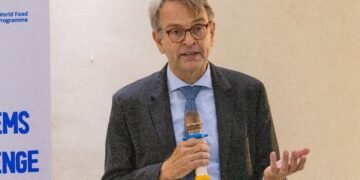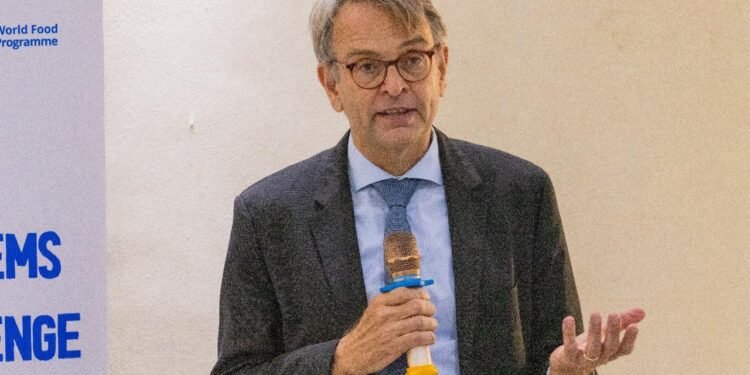The German government has urged the South Sudan’s Revitalized Transitional Government of National Unity (R-TGoNU) to urgently address the country’s growing insecurity and foster a safe civic space that can unlock innovation and development, particularly in the agricultural sector.
Speaking at the Ignite Food Systems Challenge in Juba on Tuesday, Bjorn Niere, Germany’s Deputy Head of Mission in South Sudan, emphasized that national progress cannot be achieved without the fundamental pillars of peace and freedom.
“This country needs security. The lack of it is the main obstacle to progress and development in South Sudan,” Niere said.
He called on the government to take deliberate steps to protect its citizens and ensure they are able to thrive in an environment that promotes creativity and resilience.
“I call on the transitional government to ensure security for its citizens and to create civic space for its citizens to live up to their potential and also be innovative,” he stated.
South Sudan, the world’s youngest nation, continues to grapple with sporadic violence, intercommunal clashes, and political instability despite the peace deal signed in 2018.
In many parts of the country, especially rural areas, insecurity remains a serious barrier to everyday activities like farming, trade, and education.
Armed raids, looting, and displacement have made it difficult for communities to cultivate their land or transport their goods safely.
The result is a fragile food system, heavily dependent on international aid and vulnerable to climate shocks.
Niere linked the ongoing insecurity to the stagnation of food systems, noting that innovation and sustainability in agriculture cannot flourish without stable conditions.
“If there is no freedom, there is no innovation. And innovation also needs standards, rules and regulations to flourish and finally lead to the development of sustainable food systems,” he explained.
He stressed that with improved security and freedom, initiatives like the Ignite Food Systems Challenge, the Climate Resilience Program, and other grassroots efforts could drive the much-needed transformation in South Sudan’s food security.
“If there is security, if there is freedom for the people, then initiatives like the Ignite Food Systems Challenge and programs like the Climate Resilience Program and other initiatives will make the change that is currently urgently needed to transform the food system and to give self-sustainability to the people of South Sudan,” he emphasized.
The Germany diplomat further underlined the need to create an enabling environment where citizens can actively participate in rebuilding the nation, through farming, innovation, and entrepreneurship as the transitional government continues to navigate the path to permanent peace and national elections.












